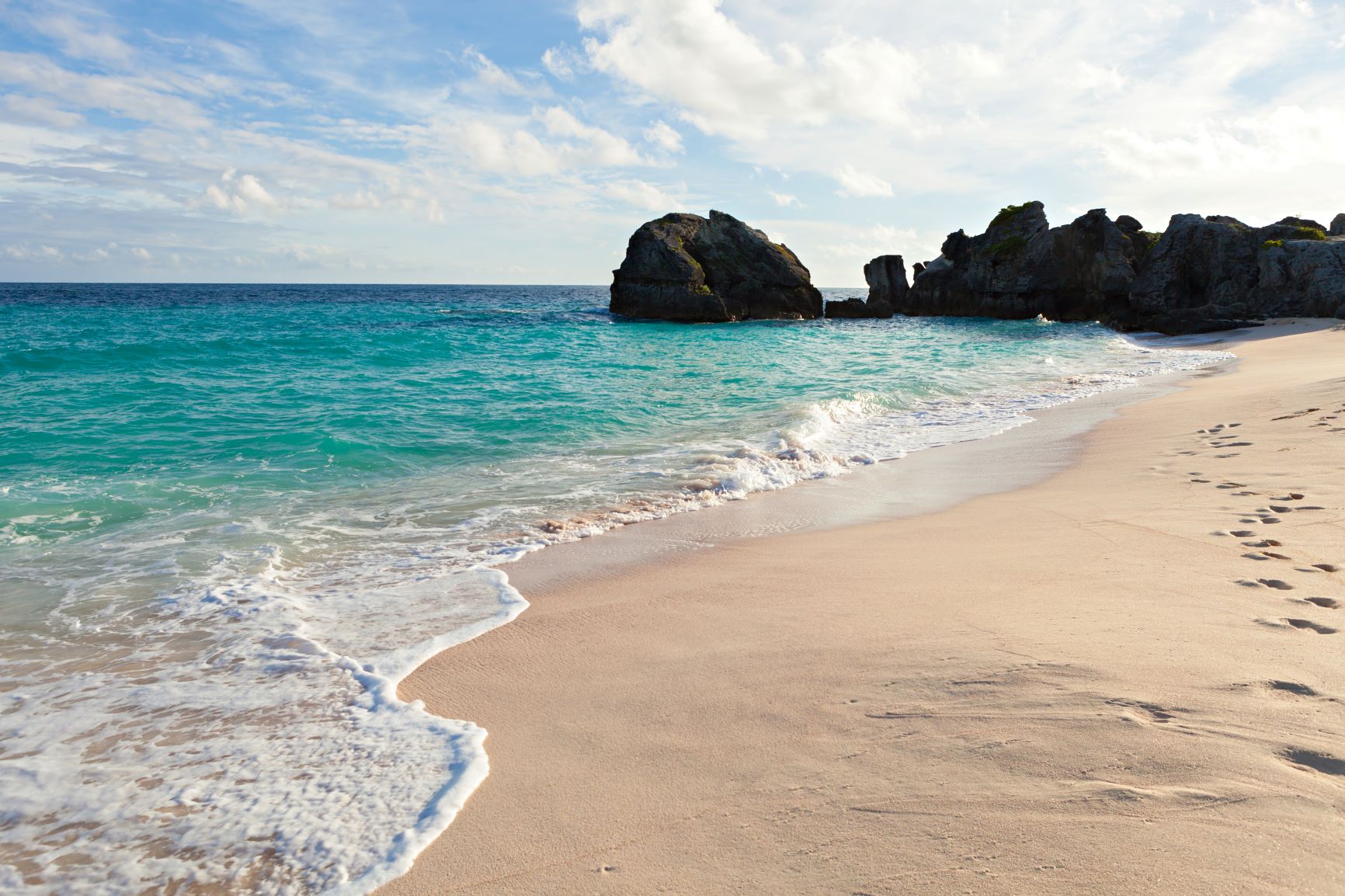Tag: Vacation
The Health Benefits of Even the Shortest Vacations
December 15, 2024

Just like an athlete benefits from breaks during exercise, vacations are an important part of someone’s well-being. According to a Pew Research Center survey in 2023, nearly half of the U.S. workers surveyed said they take less time off than the paid time off their employers gave them, while globally, eighty-five percent of workers reported that vacations make them feel more optimistic and that regular vacations are important for their overall health.
“Not taking time off from work to go on vacation or simply rest can lead to overwork and burnout,” says Joyce Marter, a licensed psychotherapist. “People should use all the vacation time allotted to them—and sick days should also be used.
If you’ve been feeling the need for a true rest, here’s everything you need to know about getting the most out of even the shortest vacations.
The Right Amount of Time Off
While experts agree that any amount of vacation time is beneficial, three weeks per year may be just the right amount to benefit your health. The European Society of Cardiology conducted a 40-year-long study that found people who take less than three weeks of vacation time per year have a 37% greater risk of premature death, even despite living an otherwise healthy lifestyle.
Another study in 2020 showed that people who split two weeks of annual vacation time into five short breaks had a 24% lower risk of metabolic syndrome. Even the long weekend can come with serious benefits, as those who took a four-day vacation had improved stress-levels for an entire month after returning to work.
Since the positive effects of a trip usually fade after a month of being back home, taking several short trips throughout the year can be more beneficial than one or two long vacations. Plus, the planning process can make you feel happier than the trip itself, so allowing yourself to plan and look forward to a trip more often throughout the year extends the benefits of your vacation time even more.
The Right Way to Travel
Simply going on vacation won’t necessarily result in feeling as though you have a break. “I’ve heard countless times how exhausted people are when they come back from their vacation and feel like they ‘need a vacation from their vacation,’ and that’s because many times we pack so much into a very short amount of time,” says Esther Susag, a travel blogger. “We want to see everything, do everything, and not waste a minute.”
In order to benefit from any amount of time away, it’s important that you provide yourself with the opportunity to actually rest.
Slow travel is a more meditative approach to traveling that allows people to slow down, as the name suggests, and literally stop and smell the roses. “If you want to really unplug and relax without the stresses of traveling then slow travel may be for you,” says Mark Wolters, a YoutTube travel channel host. “You get to unpack your suitcases less, take fewer planes, trains and automobiles and just relax in a destination.
Once you’re on vacation, give yourself the gift of a loose plan. Do some research ahead of time and bring a list of some things you don’t want to miss when you’re there, as well as a few restaurant possibilities. For every day that you’re there, have a half day’s worth of activities planned, giving yourself the time and space in each place to really enjoy the experience.
The Right Companion
In order to have a truly beneficial break, it becomes important to choose the people you vacation with carefully. “Spending time with family and friends are all things that we know can increase well-being and even reduce stress,” says Stephanie Preston, psychology professor at the University of Michigan. “There can be a lot of interpersonal conflict over how you manage the schedule and the priorities.”
While the idea of traveling with extended family, for instance, seems like a good idea on paper, trying to please everyone may prove to be the opposite of a relaxing getaway.
That being said, vacations can also provide the opportunity to bond with your family members and create truly lasting connections with one another. When you plan to travel slowly, your adventure becomes more about being together as a family than about visiting as many attractions as possible. Slow travel provides the space not only to notice your surroundings but also to notice the people you are seeing them with.
The Right Location
Once you decide who to travel with, opt to stay at a vacation rental rather than a hotel. Rentals are rarely at the center of the tourist attractions. This provides both a more relaxing environment to unplug in but also immerses you more deeply into the local experience. Plus, with rentals that have fully stocked kitchens, there’s less of a reason to have to leave and more of an opportunity to stay in and unwind.
The Right Format
Most people intuitively sense that taking a break is good for their health. What’s most important for people to realize is that they don’t need a vacation to have a break. “Many people don’t often have a choice in how much rest is available to them,” says Julia Kocian, a social worker and mental health counselor. “The way society is set up, we treat rest as a privilege, not a right,” she says.
Whether it’s taking a walk in the evening or meditating while you fold the laundry, only you will know what activities best help you to relax. “I view rest as intentionally slowing down or stepping away from an activity, while taking a break can be more active, like going on a walk or stretching,” says Samantha Artherholt, a psychologist and professor at UW School of Medicine. “The goal of any sort of rest or break is it should feel relaxing. You should feel refreshed and better after the break than you did before.”
Work yourself up towards taking more vacation time by finding ways to distribute downtime throughout your day and week. “The biggest thing is giving yourself permission to do it,” Artherholt says. When you learn more about what feels like rest to you, then you can start planning a handful of short vacations for yourself throughout the year. With Insureyouknow.org, you may store your destination research, savings goals, and travel plans all in one place. Remember that planning for your next vacation may be over half of the fun.
Before You Step on the Gas, Plan Your Travel Strategy
June 11, 2022

The pros and cons of planning a summer road trip this year have gotten more complicated as rising gas prices threaten to make a bigger dent in your travel budget.
The national average for gasoline could be close to $6 by later this summer according to Tom Kloza, global head of energy analysis for the OPIS, which tracks gas prices for AAA.
To cut your gas costs, consider using the following tips to get more miles per gallon as you embark on the summer excursion you’ve been dreaming about all year.
Slow down.
Each 5 mph you drive over 60 mph is like paying an additional $0.15 per gallon for gas. Aggressive driving—speeding, rapid acceleration, and braking—wastes gas. Eliminate these practices and you may save $.12-$.82 per gallon for gas.
Keep your car maintained and running smoothly.
Make sure you have your car maintained before you hit the road by getting a tune up and clean air filters, inflating your tires properly, and using the proper grade of oil. Don’t fill up with premium gas if your car doesn’t require it. Before you drive, make sure your tires aren’t under-inflated. If they are, you will likely burn more fuel per mile than when your tires are correctly inflated.
Use your engine wisely.
Avoid excessive idling and use cruise control and overdrive gears.
Be smart about driving.
Plan errands to do them together, rather than on separate trips; carpool, walk, or cycle; use public transportation; and telecommute. If you’re in the market for a new car, consider buying a more energy-efficient or a smaller car.
Keep your car light.
Don’t store unnecessary items that add weight to your car. When you place cargo on the car’s roof, avoid excess weight that will put a strain on your engine and affect your fuel mileage.
Use apps to find the cheapest gas prices near you.
Stay updated on gas prices by using apps and sites like Gasbuddy.com, Waze, , AAA, and GasGuru. They help check gas prices in your location, so you can find pumps where you can save the most money.
Pay cash or use a cash back credit card.
You may be able to save about $.10 per gallon if you pay with cash at the pump. If you don’t want to deal with cash, consider opting for a cash back credit card for gas expenses.
Utilize fuel rewards programs.
Find convenience and grocery stores with gas fueling stations that offer rewards programs for a percentage off gas fill-ups based on total amounts you spend shopping in the stores.
Look forward to the future.
Although current fuel rates may take a big bite out of your travel budget this summer, trust—as in past years of 2008, 2012, and even the early 1980s—gas prices will eventually bounce back. Wisely use the gas-saving tips mentioned above to ease your way through the current high gas prices.
InsureYouKnow.org
When you travel this summer, keep records of your auto insurance, car maintenance, travel insurance, and rental car and hotel expenses at insureyouknow.org. You’ll be able to refer to these documents while you’re on the road and after you return home when you reflect on your wonderful summer vacation.
Good-bye, 2019! Hello, 2020!
December 1, 2019

As 2019 ends, take time to reflect on your accomplishments, lessons you learned, and the knowledge and skills you acquired. Self-reflection helps build emotional self-awareness that enables you to ask yourself relevant questions and to gain a better understanding about your reactions, strengths, weaknesses, and motivational factors. An annual review is a great way to remember your favorite moments, take stock of the minor and major events of the year, and to plan for the coming year.
Areas for reflection on and questions to consider include:
Career
- What were the most important goals you proposed and accomplished this year?
- Did you deal with career challenges and plan for warranted changes?
- Did you improve your competencies in knowledge and skills?
- What is your most pressing unfinished project and what are your plans to complete it?
- Do you have any other goals that you didn’t meet in 2019?
Health
- What were your lifestyle, fitness, and diet accomplishments?
- Which healthy habits did you adopt and which unhealthy habits did you abandon?
- Did you review your health insurance plan to determine if you are adequately covered and are spending an appropriate amount of money on the level of coverage you need?
- What health challenges did you face and did you heed warning signs about health set-backs or need for medical check-ups?
Relationships
- What were the most significant changes in your personal and professional relationships?
- Did you make time for your family, friends, and colleagues?
- Did any of your existing or new relationships deserve more attention?
- Did you successfully mentor someone who relied on you for guidance?
- Did you willingly seek assistance from current and new people in your life?
Finance
- Did you keep track of and act on acquired debt as well as retirement, savings, and emergency fund options?
- Did you participate in realizing business-related financial successes (or failures)?
- What risks did you take and how did they pay off?
Emotions
- Did you try to understand your emotional needs and motivations?
- Did you communicate with others by expressing your feelings and by listening to and appreciating other people’s points of view?
- What do you wish you had done differently and how could you have done better?
- What new things did you discover about yourself that you tried to improve?
Joyful Endeavors
- Did you enjoy spending time on hobbies, vacations, and fun activities with family and friends?
- Did you try any new activities that you will add to your repertoire?
Technology
- Did you face new technological challenges at work or home?
- Did you evaluate your Wi-Fi needs and upgrade your home or office environment based on your assessment?
- Did you subscribe to or renew an insureyouknow subscription to allow you to store your meaningful and vital records in one secure easy-to-use location?
If you maintain a printed or virtual calendar/planner or diary/journal, save email messages, or participate in social media, you can refer to these daily, weekly, or monthly records to review your 2019 accomplishments. When spending time on self-reflection, jot down activities in a notes app on your phone or tablet, in a document on your computer, or by using pen and paper. By holding yourself accountable for personal and professional choices in 2019 and determining a successful course to take in 2020, self-reflection allows you to:
Recognize accomplishments and congratulate yourself.
Reflect on lessons learned, as well as knowledge and skills acquired.
Acknowledge mistakes to use as a self-improvement tool.
Analyze how you to do better in 2020.
Figure out what gives you joy and you are truly passionate about.
Insureyouknow has a tool available to track accomplishments and lessons learned upon completion of your annual self-reflection or any time throughout the year. You can digitally file data to refer to as you continue your self-reflection journey that will allow you to remember 2019 in order to prepare for 2020.
Summer Speculations
June 1, 2019

Can you believe it’s already June. Where did the first 5 months of the year go? And have you already planned out your summer, or has that been on the to-do list for the umpteenth week? Whether you have every weekend from Memorial Day to Labor Day booked, or you are planning to enjoy the lazy, lengthy days of summer – your money is usually a factor.
Summer vacations can be crowded and expensive. Nearly 100 million Americans are planning to take a family vacation in 2019, per AAA data, and 38 million traveled during Memorial Weekend alone. The tourism industry is ramping up pricing on accommodation, transportation, food, gas and admission fees to attractions. In 2016, 58 percent of Americans spent over $1,300 on travel. This statistic is increasing 30% year over year
How to reduce Summer spending – and increase your Personal savings.
- Travel. Where do you want to go? Do you have a destination in mind? There are peak destinations that four out of 10 U.S. adults are hoping to travel to in the summer. However there are hundreds of articles with off-peak options. Try to book your flights 45 days in advance, and avoid the US National Holidays and early-August if possible. Schools in the US and Europe are off for summer break and families are taking advantage of the last few weeks off.
- Accommodations You probably already have experience with hotel chains or bed and breakfast establishments, but now there are many other options. The explosion of home rentals priding themselves as vacation experiences, are catering to all types of travelers. There are 1 night rentals to multiple week possibilities. Resorts are also affordable with lodging-only options instead of all-inclusive.
- Attractions and Activities. From amusement parks to museums to waterparks – every location has activities to enjoy. Coupons and online discounts are available for most of the top attractions and there may even be reduced rates for visiting on weekdays vs. weekends. Some banks and credit cards also have affiliations – Museums on Us is an example.
- Time. Can you mentally and physically afford to take the break out of your routine? Your workplace may have vacation policies around when you can use your time-off. Consider if you would like to save some time for DIY at the home or local excursions.
At the end of the day – take the vacation that works for your budget and time circumstances. If you only have a weekend – a staycation may be much more enjoyable than spending multiple hours on planes trains and automobiles to reach your destination for just a few hours. If you have a limited budget – create a list of the must-haves and ignore the advertising, social media and recommendations that you may encounter.
Bon Voyage! or Enjoy your couch! Before you enjoy your summer break, don’t forget to upload all your documents onto InsureYouKnow.org. It’s a safe place to store all the information in case you need to access it remotely – or from the comforts of your own home.
